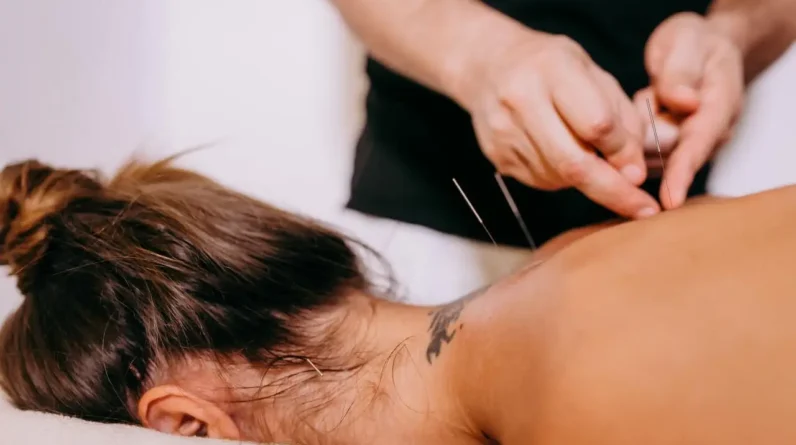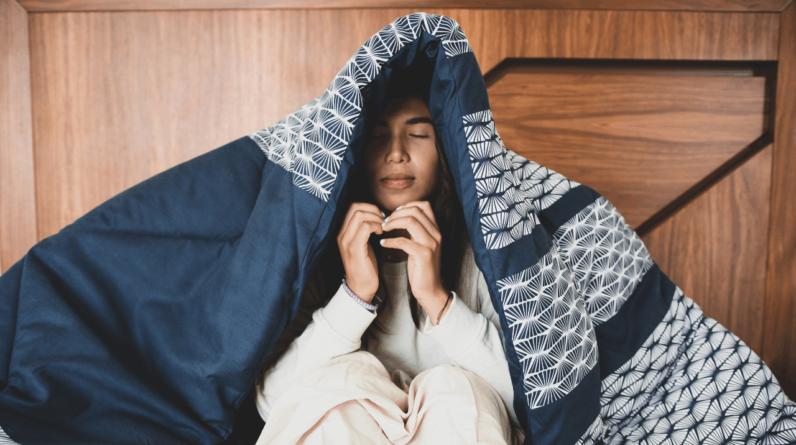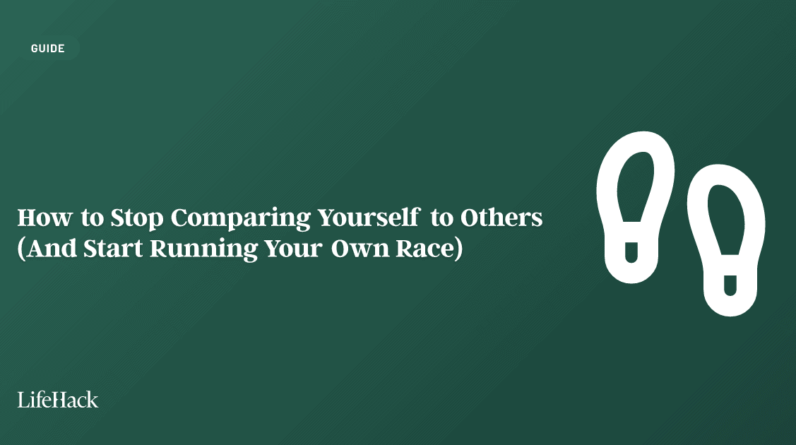
Acupuncture is a traditional Chinese medicine practice that is thousands of years old.
The fact that it’s still around today stands as a testament to its power and healing potential.
While it’s often been raved about for its use in treating physical ailments, such as chronic pain and digestive issues, in recent years, increasing attention has been given to its potential mental health benefits.
With depression and anxiety rising, there’s never been a higher need for increased mental wellness interventions than right now.
But how exactly does inserting thin needles into specific points on the body correlate to improved mental well-being?
In this article, we dive into the scientific research behind acupuncture and mental health and how it might benefit anxiety and depression.
How Does Acupuncture Help With Mental Health?
Similar to how acupuncture addresses physical pain, these thin needles can also stimulate areas of the body that are associated with certain hormones involved in regulating our emotions. Oftentimes, mental health issues arise due to hormonal imbalances in the body.
- So, is there research to support this?
- Can acupuncture help depression and anxiety?
- How does acupuncture release emotions?
One 2019 scientific review indicated that there were significant depression symptom reductions associated with increased acupuncture sessions. Other experts indicate that acupuncture for depression could be an alternative for those not responding to traditional treatment methods.
Acupuncture is thought to help mental health conditions by impacting areas of energy called “qi.” When this energy becomes blocked, dysfunctions, such as mental health issues, could arise.
Acupuncture is believed to stimulate “qi” allowing it to flow as it should. A 2020 scientific review even went so far as to state that acupuncture may increase the effectiveness of antidepressants.
Lastly, acupuncture may help reduce chronic pain, improving mental well-being. It can also improve sleep, which may help with hormonal or chemical imbalances.
Related Article: 4 Ways to Get Support for Depression When You Can’t Afford Therapy Right Now
6 Acupuncture Benefits
Acupuncture is known for an array of benefits, including the following.
Pain Relief
One of the most well-documented benefits of acupuncture is its effectiveness in treating various kinds of pain, including:
- chronic back pain
- osteoarthritis
- migraines
- and menstrual cramps
By targeting specific acupoints, it helps reduce inflammation and promotes natural healing.
Acupuncture is even considered better for pain than some analgesic injections.
Mental Health Support
As discussed earlier, acupuncture can have a positive impact on mental health by:
- regulating neurotransmitters and hormones
- reducing stress
- and improving sleep quality
This makes it a potentially useful treatment for conditions like depression, anxiety, and stress.
Enhanced Digestive Health
Acupuncture has been used to treat various digestive issues, such as:
- irritable bowel syndrome (IBS)
- chronic indigestion
- and nausea—often a side effect of chemotherapy or surgery
The treatment aims to regulate the digestive system and restore balance.
Again, this could contribute to better mental well-being, such as decreasing anxiety associated with digestive symptoms.
Improved Sleep Quality
By increasing melatonin secretion levels, acupuncture can help improve sleep quality and reduce insomnia.
A good night’s sleep is essential for overall health, impacting everything from mood to immune system function.
Immune System Boost
Some studies suggest that acupuncture can stimulate the immune system, helping the body fight off diseases more effectively.
While more research is needed in this area, the potential benefits are promising.
Respiratory Health & Treatment
Acupuncture is often used as an adjunctive treatment for respiratory disorders like:
It is thought to help by reducing inflammation in the respiratory system and improving lung function.
How Do You Know If Acupuncture Is Working?
Often, it may take a few sessions to have noticeable improvements.
However, some may notice relief immediately after the very first session. It’s important to be aware that it’s different for everyone, and giving it a few sessions before throwing in the towel is essential to determine if it works for you or not.
Are There Side Effects?
Common side effects include bruising or slight bleeding at the site of insertion. This is usually nothing major to worry about.
It may further help to know that all needles are used only once. Each package is sterilized and thrown away after use.
Some individuals may experience specific rare side effects, like nausea, infection, skin rash, allergic reaction, or dizziness. Further rare side effects include nerve damage, organ damage, or brain or spinal cord injury. However, when done by a licensed professional, this should never occur.
(Always do your research to ensure your health practitioners are trained, licensed and certified. Look at reviews, ask your doctor or therapist and consider recommendations from someone you trust.)
Related Article: Emotions Out of Whack? Try The Emotional Freedom Technique (EFT)
How Do You Know If It Will Help You?
The truth is that most people have to try it out to determine if its right for them or not.
Whether you’re a skeptic, a curious observer, or someone actively seeking holistic ways to better your mental health, acupuncture could provide what you need in a relaxing way.
In fact, since oftentimes, acupuncture requires sitting with the needles in for five to 60 minutes, many use this time to meditate and relax (similar to how you would at a spa!).
If you’re uncertain about acupuncture, the best thing you can do is discuss your options with your doctor or therapist.
They can help you determine if this is the right treatment avenue for you.
Read Next: Anxiety and Depression Can Go Hand in Hand: How Do You Know?
Editor’s note: This article was originally published Sep 14, 2023 and has been updated to improve reader experience.
Photo by Alma Thai







